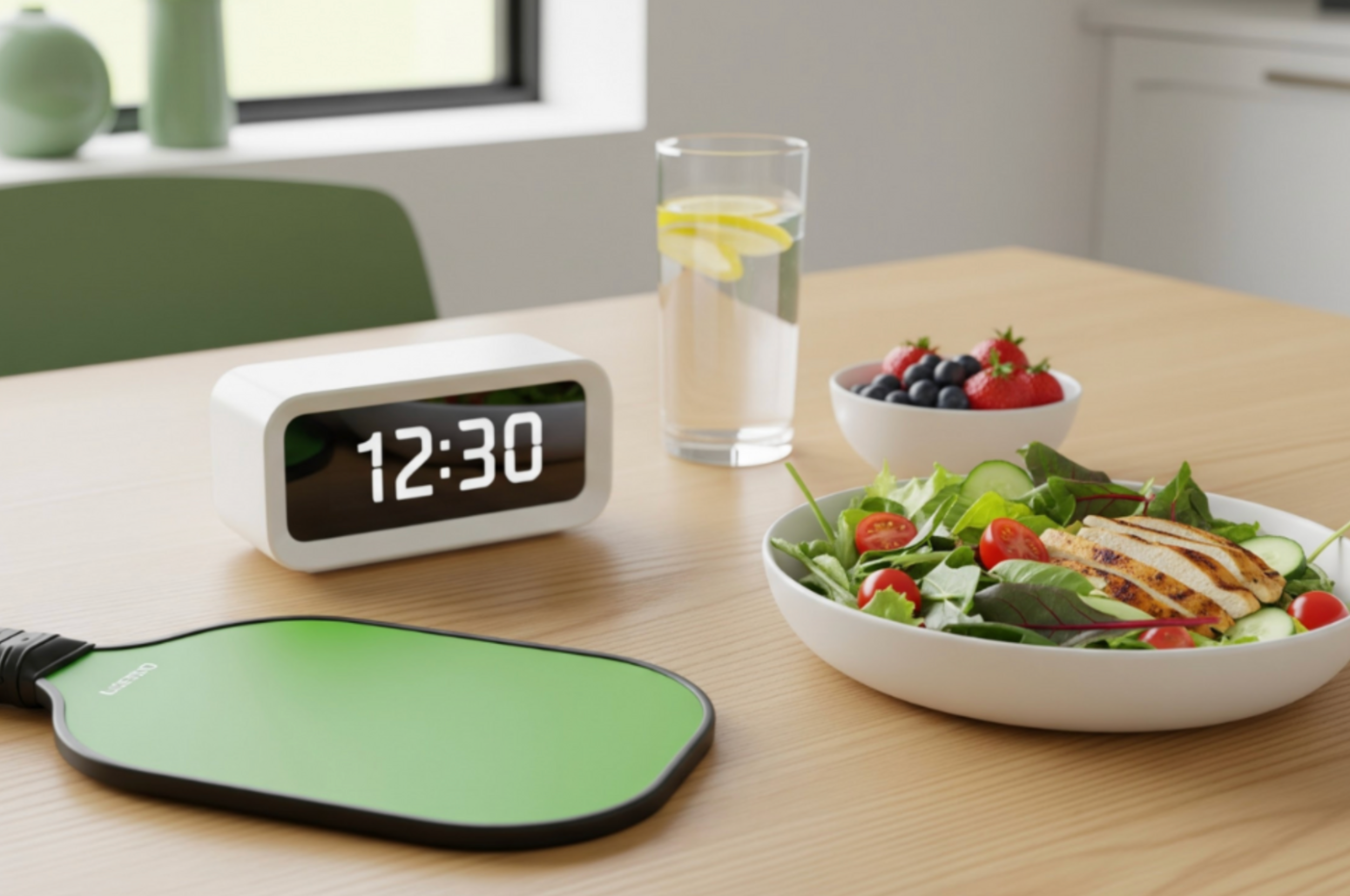Intermittent Fasting and Pickleball, Are There Benefits For Your Game?
Discover how fasting can power your play without draining your energy
Intermittent fasting (IF) has gained popularity as a health trend for its potential benefits like weight loss, improved metabolic health, and even enhanced longevity. As a pickleball enthusiast, you might wonder how fasting can impact your game and overall fitness.
There are two general kinds of IF, first is when you eat during a limited period of time during the day. For example you only eat from noon until 6pm, resulting in 18 hours of fasting. This is also referred to as time restricted eating, and a simple way to look at it is as skipping breakfast. The other method is eating normally for a number of days, and then fasting for 24 to 48 hours or more. The first method is most commonly used these days.
Playing Fasted: What to Expect
When you play pickleball in a fasted state, you might experience both physical and mental effects. On the physical front, your body relies on fat stores for energy, which can improve fat oxidation and support weight loss over time. Many players report feeling light and agile without the extra weight of a recent meal, allowing for quick movements and better performance.
However, energy levels can vary. Some players find themselves energized and mentally clear, while others may experience fatigue or lightheadedness, especially during longer sessions. It's important to listen to your body and adjust your intensity or fasting window as needed.
Weight Loss and Metabolic Benefits
Intermittent fasting can support weight management by promoting a caloric deficit and enhancing metabolic flexibility. This means your body becomes better at switching between burning carbohydrates and fats for energy, which could enhance endurance during pickleball matches. Over time, consistent practice combined with fasting may lead to reduced body fat and improved body composition, beneficial for agility on the court.
Autophagy: Cellular Cleanup
One of the intriguing concepts associated with IF is autophagy, the process where the body cleans out damaged cells, potentially enhancing cellular health. However exercise, including pickleball, also stimulates autophagy, promoting muscle repair and recovery.
While research suggests that fasting and exercise like pickleball can independently stimulate autophagy, the science is still evolving. Current studies are promising but not entirely conclusive. Variables such as fasting duration, intensity of exercise, and individual physiology all play roles in determining the extent of autophagy.
Tips for Playing Fasted
Start Slowly: If you're new to fasting, ease into it. Begin with shorter fasting windows and gradually increase as you become more comfortable.
Hydrate Well: Drinking water or electrolyte-rich beverages is crucial, especially if you’re playing in a fasted state.
Listen to Your Body: Pay attention to signs of fatigue or dizziness. It’s okay to break your fast if you’re not feeling well—your health comes first.
Adjust Intensity: You might find you have more energy during certain fasting windows. Tailor your pickleball sessions accordingly to optimize performance.
Conclusion
Intermittent fasting can be a valuable tool for pickleball players seeking weight loss, enhanced health, and improved performance. While the benefits are intriguing, it’s essential to approach fasting thoughtfully, listening to your body and adjusting as necessary. As research continues to unfold, integrating fasting with regular pickleball play could become a powerful strategy for holistic well-being on and off the court.

